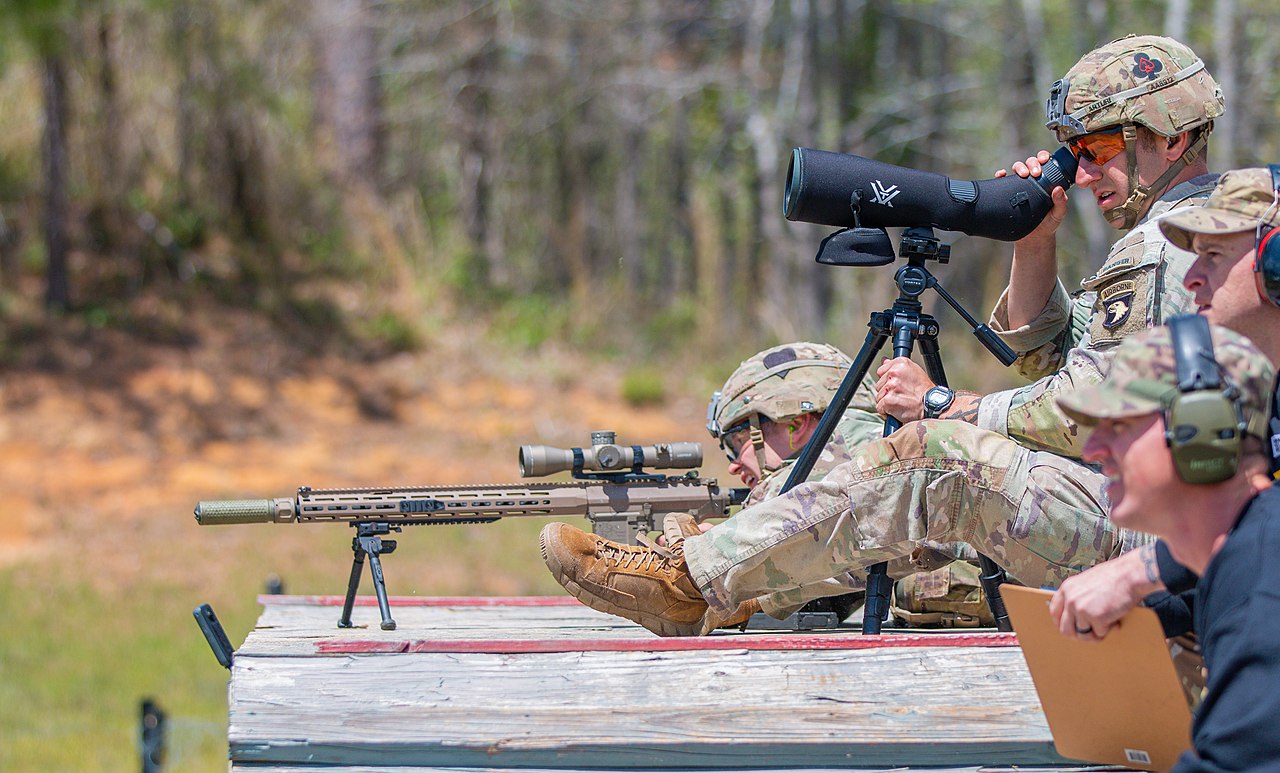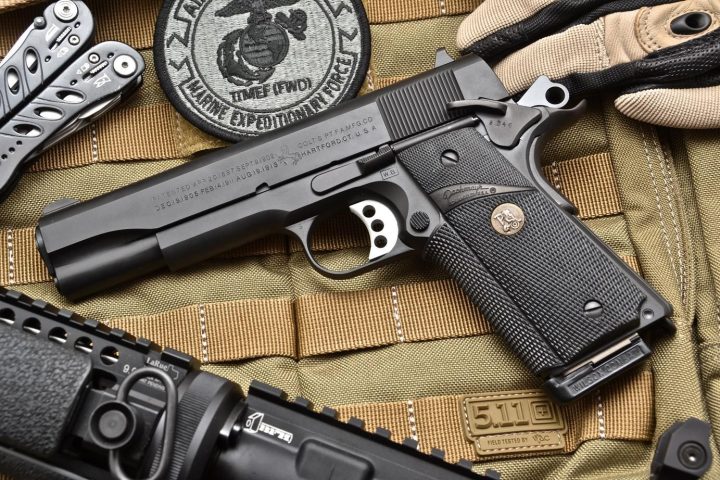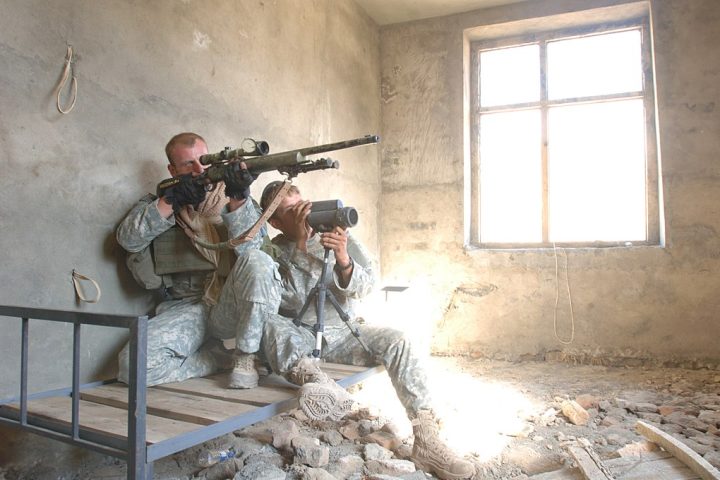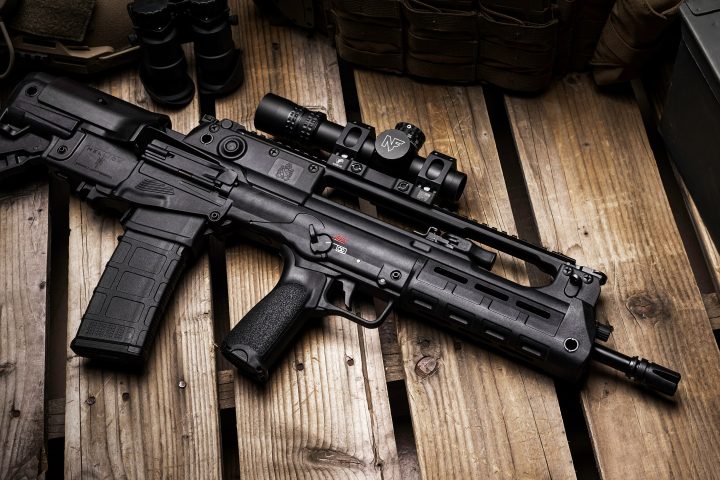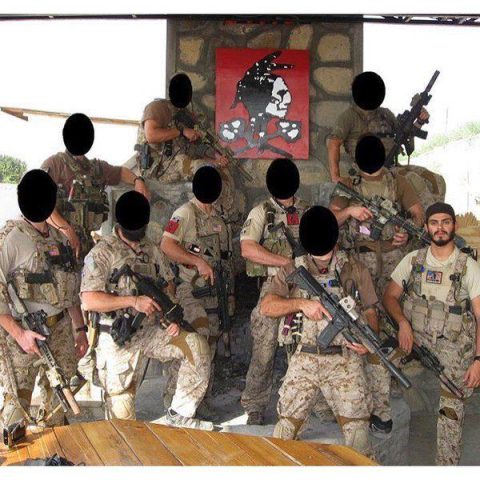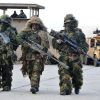The M110 sniper system is an American semi-automatic precision rifle chambered in 7.62x51mm NATO that was designed to provide accurate and reliable fire at ranges of up to 800 meters. It is manufactured by Knight’s Armament Company, developed from the Knight’s Armament Company SR-25.
Introduction
The M110 is a popular rifle among operators of all special operations units from all U.S. military branches, including the Army, Navy, Marine Corps, and Air Force. The standard M110 version was introduced in 2008, and since then, it was to be replaced by the lighter and more compact M110A1 CSASS, which is developed from the G28, a variant of the Heckler & Koch HK417. However, most M110A1 models fielded have been of the SDMR variant. In 2021, a newer variant, the M110A2, was showcased and seen in use in early 2022.
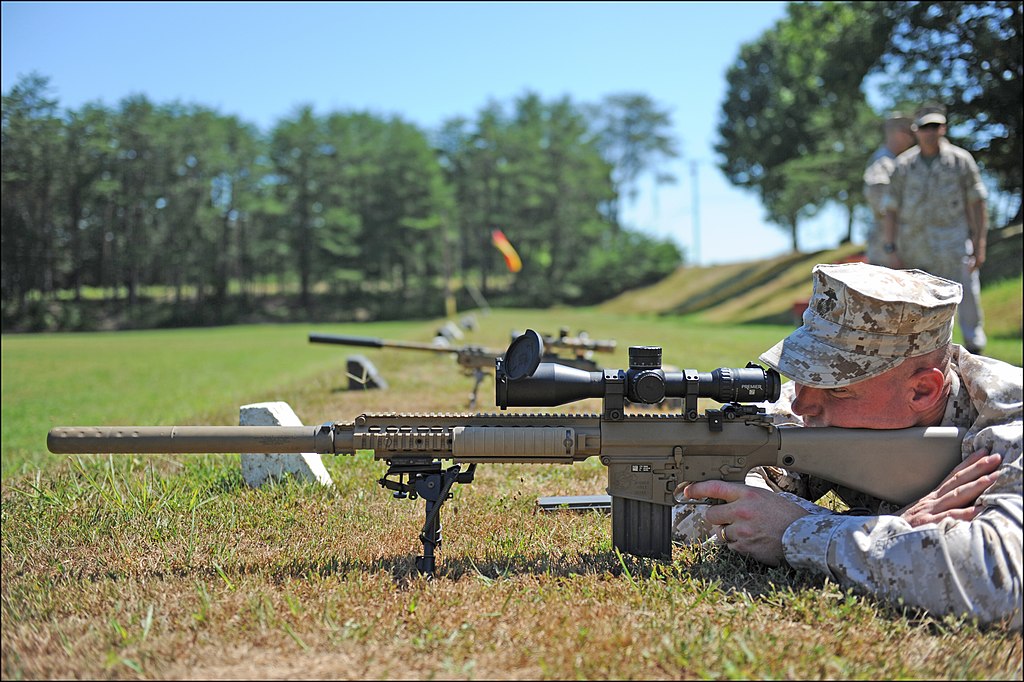
On June 12, 2008, the M110 was ranked #2 on the U.S. Army’s top ten inventions of 2007.
History
The M110 semi-automatic sniper system was developed by the U.S. Army to replace the M24 Sniper Weapon System. The M24 had been in service since 1988, but the Army recognized the need for a more modern and capable rifle to meet the changing demands of the battlefield. The M110 project began in 2005 through the completion of the U.S. Army Semi-Automatic Sniper Rifle (XM100 SASR). In 2008, it was officially adopted by the Army, and since then, it has been introduced into the Marine Corps and other units within the United States military.
Design
The M110 is a gas-operated, air-cooled, semi-automatic rifle chambered in 7.62x51mm NATO. It has a 20-inch barrel and can be fitted with various sights and other accessories. Knight’s Armament Company signs the whole system in Titusville, Florida. Still, it also incorporates accessories of different manufacturers such as Leupold 3.5–10× variable power daytime optic, Harris swivel bipod, AN/PVS-26 or AN/PVS-10 night sight, and PALs magazine pouches of various manufacturers.
The rifle is designed to be lightweight and portable, with an adjustable folding buttstock and a modular design that allows for easy customization and maintenance. The rifle has ambidextrous features such as a double-sided magazine release, safety selector switch, and bolt catch.
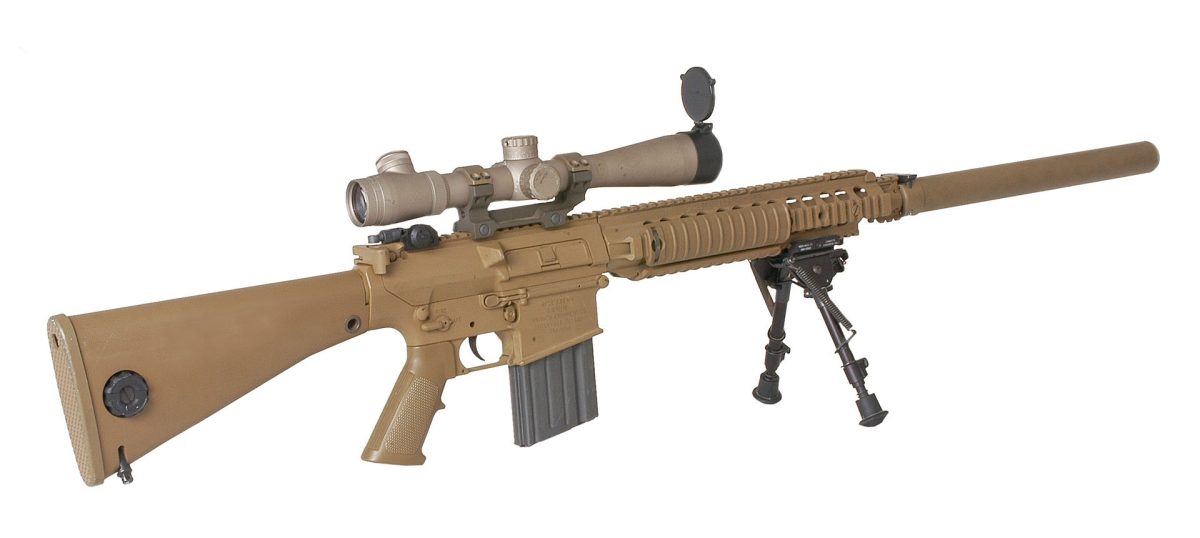
The M110 uses a short-stroke piston system, a gas system that uses a piston to operate the rifle’s action. In a short-stroke piston system, a small amount of gas is bled off the barrel when a round is fired. This gas is used to push a piston, which moves the bolt carrier and cycles the rifle’s action.
The piston is attached to the bolt carrier and moves with it, transferring the gas’s energy to the rifle’s action. The short-stroke piston system has several advantages over other types of gas systems. It is more reliable, as it reduces the amount of heat and fouling that builds up in the rifle.
It also reduces recoil and muzzle rise, allowing faster and more accurate follow-up shots. Additionally, the short-stroke piston system allows for a wider range of ammunition, including newer, more advanced rounds that offer improved accuracy and performance.
M110 is often used for missions such as providing long-range fire support for infantry, engaging enemy targets at distances beyond the range of standard infantry weapons, and conducting surveillance and reconnaissance operations. The rifle’s semi-automatic action allows rapid and accurate follow-up shots, and its modular design allows easy customization and maintenance in the field.
Variants
Over the years, the M110 has undergone several improvements and upgrades. In 2012, the Army began fielding the M110A1, which featured a redesigned stock, handguard, and a new suppressor. In 2018, the Army began testing the M110A1 Compact Semi-Automatic Sniper System (CSASS), a shorter and lighter version of the M110A1. The CSASS is designed to be more portable and easier to use in close quarters, such as inside buildings or in urban environments.
M110A2
The M110A2 is an improved version of the original M110 rifle with M-LOK rails, an improved gas system, a new suppressor, and adjustable stock. This fills the gap of semi-automatic sniper rifles as almost all of the M110A1 rifles issued were the SMDR variant and not designed for sniper work. The M110A2 is shorter than the original M110 and lighter at 10.5 lb (4.8 kg), which is comparable to the M110A1 SDMR’s weight of 10.9 lb (4.9 kg) with no attachments save an unloaded magazine. The decreased overall length does not come at the cost of barrel length, as the M110A2 still has a 20 in (510 mm) barrel.
M110A3
The M110A3 is a 6.5mm Creedmoor conversion for SOCOM M110 rifles. In October 2019, NSWC Crane ordered KAC’s self-termed M110K1 conversion kits to upgrade USSOCOM’s M110s to fire 6.5mm Creedmoor, with 14.5-inch (370 mm) and 22-inch (560 mm) barreled configurations. These conversion kits included complete upper receiver assemblies chambered for 6.5 Creedmoor, new muzzle brakes, collapsible buttstocks, and precision adjustable buttstocks. New Q.D. suppressors for 6.5 Creedmoor were to be ordered separately.
Combat usage
The M110 has been used in combat operations in Iraq and Afghanistan and has proven to be a reliable and effective weapon for long-range shooting. American snipers praised M110 for its accuracy, reliability, and versatility in combat. According to the reports, the rifle has been used in various scenarios, including urban environments, mountainous terrain, and other challenging environments. So far, it continues to be an essential part of the U.S. military’s arsenal of small arms.
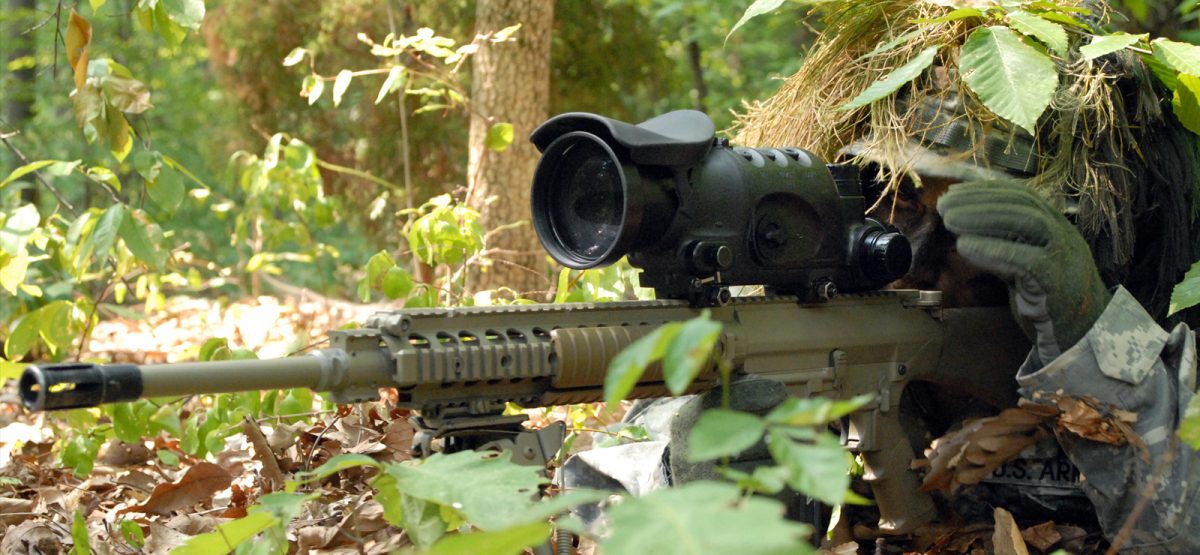
Users
- Armenia: Used by Army Special Forces
- Brazil: Used by Army Special Forces
- Poland: Used by Polish Special Forces.
- Romania
- Singapore
- United States: Used primarily by U.S. Army snipers.
Technical specifications
| Country of origin: | United States |
| Manufacturer: | Knight’s Armament Company (KAC) |
| Action: | gas-operated, rotating bolt |
| Caliber: | 7.62x51mm NATO, 6.5mm Creedmoor |
| Length: | 39.5 inches |
| Barrel length: | 20 inches |
| Weight: | 12.5 pounds |
| Magazine capacity: | 10 or 20 rounds detachable SR-25 pattern box magazine |
| Muzzle velocity: | 2,800 feet per second |
| Effective range: | 800 meters |
| Sights: | various optical and electronic sights can be fitted, including the Trijicon ACOG and the Leupold Mark 4 |
| Stock: | adjustable folding buttstock |


